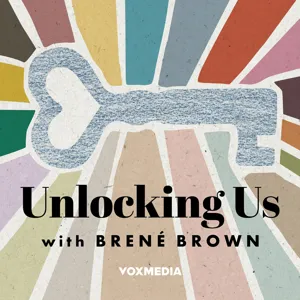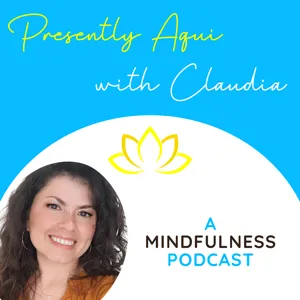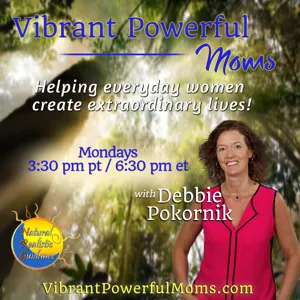Podcast Summary
The Power of Assuming Positive Intent: Assuming positive intent can lead to better relationships and understanding by reducing misunderstandings and conflicts. Practice generosity by assuming the most generous thing about someone's thoughts, actions, and words.
Assumptions matter, and assuming positive intent can lead to better relationships and understanding. In this episode of Unlocking Us, Brené Brown and her sister Ashley discussed the importance of boundaries and generosity. This was the last episode of the podcast as Brené announced she was taking a break at least until Q1 of 2023, and there are no plans for a future podcast. They also touched upon the topic of assumptions and the power of assuming positive intent. Brené shared how this assumption can lead to misunderstandings and conflicts if not practiced. She mentioned that it's a common value in companies and encouraged listeners to adopt the hypothesis of generosity, assuming the most generous thing about someone's thoughts, actions, and words. Ashley, a therapist, added her perspective on the importance of this practice. The episode also included a conversation about the end of a chapter and the excitement for what's to come. They shared their gratitude for the community and the guests who have been on the podcast. They also shared some personal stories and moments of joy, like their love for playing Euchre. Overall, the episode emphasized the importance of assumptions and the power of assuming positive intent. It's a reminder that people are generally doing their best, and assuming the best can lead to better relationships and a more positive outlook on life.
Setting clear boundaries is essential for healthy relationships: Communicating openly and setting boundaries can lead to unexpected benefits in relationships, even when initial situations seem challenging
Having positive intent towards others is important, but setting clear boundaries is essential for healthy relationships. The speaker shared a personal story about feeling pressured into agreeing to share a hotel room with another speaker at an event, despite her discomfort with the arrangement. This experience led her to reflect on her family's cultural norms around being low-maintenance and the importance of asking for what she needed. Ultimately, the speaker learned that setting boundaries and communicating clearly can lead to unexpected benefits, even if the initial situation seemed challenging. By practicing openheartedness and kindness, she was able to form a meaningful connection with her roommate, despite their initial reservations.
The dangers of self-righteousness: Self-righteousness can lead to negative emotions and harmful actions, undermining our own recovery and relationships. Self-awareness, humility, and compassion are key to fostering healthier relationships and living more fulfilling lives.
Self-righteousness can be as destructive as any addiction, and it's important to recognize and avoid it. In the text, the speaker's self-righteousness was triggered by her roommate's messy behavior and led her to judge and resent others, ultimately putting her own recovery at risk. It's easy to slip into the belief that we're better than others, but this mindset can lead to negative emotions and harmful actions. Instead, it's essential to practice humility, compassion, and self-awareness, and to remember that everyone, including ourselves, has flaws and makes mistakes. By recognizing our own imperfections and extending kindness and understanding to others, we can foster healthier relationships and live more fulfilling lives.
Comparing ourselves to others and holding onto anger can hinder personal growth: Expressing emotions in a safe and judgment-free space can help individuals process and move past anger and resentment, promoting personal growth
Comparing ourselves to others and holding onto resentment and anger can lead us to destructive behaviors, such as overeating or numbing out. These short-term solutions may provide temporary relief, but they ultimately perpetuate negative emotions and hinder personal growth. Instead, creating a safe and judgment-free space to express emotions, as demonstrated in the therapy session, can help individuals process and move past their anger and resentment. By acknowledging and validating feelings without judgment, individuals can work through difficult emotions and make progress in their personal growth journey.
Roommate's Disrespect and Mockery: Recognize disrespect, communicate effectively, and set healthy boundaries to maintain relationships.
Encountering individuals who disregard rules and make fun of those who follow them can be frustrating and damaging to relationships. A sewer rat, who doesn't respect others or their property, and a scofflaw, who mocks rule-followers, can be particularly challenging combinations. In the given story, the roommate's disregard for rules and mockery of the speaker led to conflict and misunderstanding. While it's essential to recognize that everyone may not be doing their best at all times, it's also crucial to communicate effectively and set healthy boundaries to maintain healthy relationships.
Believing people are doing their best: Remember that everyone is dealing with unique challenges, and it's important to approach situations with empathy and understanding instead of judgment.
Despite our differences and challenges, it's essential to believe that most people are doing their best with the tools they have. This belief was shared by a fellow social worker, but disputed by the narrator during a therapy session. However, the narrator's perspective was challenged when she witnessed a woman's fear and desperation during a bank transaction. The teller suggested that the woman might be doing her best given her circumstances, which made the narrator reflect on her own judgmental attitude. Ultimately, the encounter made the narrator question her assumptions and consider the complexities of people's situations. It's a reminder that everyone is fighting their own battles, and it's crucial to approach situations with empathy and understanding.
Beliefs about others doing their best impact compassion and acceptance: Assuming the best in others fosters compassion and acceptance, while assuming the worst leads to criticism and judgment.
People's beliefs about whether others are doing their best can be strongly influenced by their own self-perceptions and experiences. Those who believe that people are doing their best tend to be more compassionate and accepting, while those who don't believe it often struggle with perfectionism and judge themselves and others harshly. The speaker's own experience of being judged for not meeting an ideal, such as breastfeeding for a year, illustrates the potential consequences of this mindset. Overall, the research suggests that assuming the best in others can lead to greater understanding and empathy, while assuming the worst can lead to criticism and judgment.
Assuming the best in people leads to better relationships: Assuming the best in people allows us to focus on the present, avoid judgment, build stronger relationships, and foster personal growth.
Assuming people are doing their best can lead to a more compassionate and fulfilling life. This was a powerful lesson learned from a difficult experience of feeling judged for not being able to breastfeed, as well as from the insights of a pediatrician and a therapist. It's important to remember that there are many ways to be a great mother, and shaming others is not one of them. Assuming the best in people allows us to focus on the present and avoid judgment, leading to better relationships and personal growth. Compassionate people also have well-defined boundaries and ask for what they need, which can be challenging for those who prioritize pleasing others over setting boundaries. Overall, this lesson encourages empathy, understanding, and self-reflection.
Setting healthy boundaries for compassion: Recognize self-value to extend compassion, let go of anger and judgment for personal growth
Setting healthy boundaries is essential for maintaining compassion and avoiding resentment. The speaker shared her experience of feeling unappreciated when she didn't charge a speaking fee, leading her to question why people undervalue her work if she does the same. The discussion then shifted to a group exercise where clergy were asked to consider that someone they judged was doing their best, resulting in a powerful moment of empathy and release of anger. The speaker emphasized the importance and difficulty of this work, which involves recognizing and moving beyond resentment towards understanding and compassion. This exercise highlights the need for self-value and respect in order to extend it to others, and the potential for profound personal growth when we let go of anger and judgment.
Setting healthy boundaries for self-compassion and compassion towards others: Believing in the value of ourselves, our time, and our space allows us to set healthy boundaries, which in turn enables us to effectively show compassion to others. Self-care and self-compassion are essential foundations for compassionate relationships.
Setting healthy boundaries is essential for both self-compassion and compassion towards others. The speaker, Ashley, shares her personal journey of discovering the connection between boundaries and compassion through extensive research. She explains that when we believe in the value of ourselves, our time, and our space, we are able to set boundaries, which in turn allows us to have a full "cup" to give to others. Conversely, if our own needs are not met, we cannot effectively show compassion to others. Ashley also mentions that setting boundaries can be challenging and requires self-belief, but it is necessary for living in integrity and being generous towards others. During her therapy sessions, she observes that some clients resist the idea of setting boundaries, but she encourages them to consider the potential benefits for themselves. Overall, the conversation emphasizes the importance of self-care and self-compassion as foundations for compassionate relationships with others.
Stay connected through ongoing communication and learning: Sign up for the newsletter, tune in for the next part, follow on favorite podcast app, stay engaged, stay curious, embrace awkwardness, bravery, and kindness
Importance of staying connected through ongoing communication and learning. The hosts, Brene Brown and Ashley C. Ford, invite listeners to sign up for their newsletter and tune in for the next part of their conversation. This podcast, "Unlocking Us," is produced by the Brene Brown Education and Research Group and features music by Carrie Rodriguez and Gina Chavez. Listeners can access new episodes as soon as they're published by following "Unlocking Us" on their favorite podcast app, which is part of the Vox Media Podcast Network. The overall message is to stay engaged, stay curious, and embrace awkwardness, bravery, and kindness in our daily lives.






